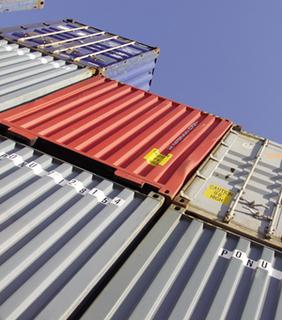German cabinet has approved sweeping income tax cuts to try to kickstart Europe's largest economy
Published:
30 June 2003 y., Monday
German cabinet has approved sweeping income tax cuts to try to kickstart Europe's largest economy, but without busting European Union budget rules.
Schroeder said the tax cuts would be financed by subsidy cuts, new borrowing and possibly revenues from the sale of shares in ex-state monopolies, but he gave no precise figures.
Schroeder said the 2004 budget should still be able to meet European Union rules, which require that the deficit be below three percent of gross domestic product. Germany broke that limit in 2002 and is expected to do so again this year.
The decision to bring forward by one year 18 billion euros of tax cuts scheduled for 2005 was taken at a rare weekend cabinet conclave at a secluded country hotel.
Both the European Commission and European Central Bank have warned against financing the tax cuts through more state debt.
Šaltinis:
europedaily.com
Copying, publishing, announcing any information from the News.lt portal without written permission of News.lt editorial office is prohibited.
The most popular articles
 The European Commission has approved, under EC Treaty state aid rules, an Italian framework temporarily adapting certain existing risk-capital schemes to increase companies' financing possibilities during the current economic crisis.
more »
The European Commission has approved, under EC Treaty state aid rules, an Italian framework temporarily adapting certain existing risk-capital schemes to increase companies' financing possibilities during the current economic crisis.
more »
 The European Commission has authorised, under EC Treaty state aid rules, a Maltese measure to help businesses to deal with the current economic crisis.
more »
The European Commission has authorised, under EC Treaty state aid rules, a Maltese measure to help businesses to deal with the current economic crisis.
more »
 We're making progress. That's the word from Treasury Secretary Tim Geithner about settling the financial markets.
more »
We're making progress. That's the word from Treasury Secretary Tim Geithner about settling the financial markets.
more »
 According to a new report released by NextGen Research, global markets for financial kiosks and enhanced ATMs will grow at a compound annual rate of 9 percent, to include more than 186,000 financial kiosks and nearly 2.5 million ATMs by 2013.
more »
According to a new report released by NextGen Research, global markets for financial kiosks and enhanced ATMs will grow at a compound annual rate of 9 percent, to include more than 186,000 financial kiosks and nearly 2.5 million ATMs by 2013.
more »
 Non-farming Latvians are buying pigs to beat the economic crisis.
more »
Non-farming Latvians are buying pigs to beat the economic crisis.
more »
 Is your money well spent at EU level? Every year, in April, the EP concludes its examination of EU spending for the financial year closed 16 months previously.
more »
Is your money well spent at EU level? Every year, in April, the EP concludes its examination of EU spending for the financial year closed 16 months previously.
more »
 In the construction sector, seasonally adjusted production1 decreased by 1.0% in the euro area2 (EA16) and by 2.1% in the EU272 in March 2009.
more »
In the construction sector, seasonally adjusted production1 decreased by 1.0% in the euro area2 (EA16) and by 2.1% in the EU272 in March 2009.
more »
 Between 2000 and 2008, EU27 trade in goods with Russia more than tripled in value, with EU27 exports to Russia rising to 105 bn euro in 2008 from 23 bn in 2000.
more »
Between 2000 and 2008, EU27 trade in goods with Russia more than tripled in value, with EU27 exports to Russia rising to 105 bn euro in 2008 from 23 bn in 2000.
more »
 The European Commission has launched today a call for proposals covering key energy infrastructure projects such as energy interconnections, offshore wind energy and carbon capture and storage as part of the implementation of the EEPR.
more »
The European Commission has launched today a call for proposals covering key energy infrastructure projects such as energy interconnections, offshore wind energy and carbon capture and storage as part of the implementation of the EEPR.
more »
 During its plenary session on 13 May 2009, the European Economic and Social Committee adopted a key opinion on responding to the crisis in the European automotive industry.
more »
During its plenary session on 13 May 2009, the European Economic and Social Committee adopted a key opinion on responding to the crisis in the European automotive industry.
more »